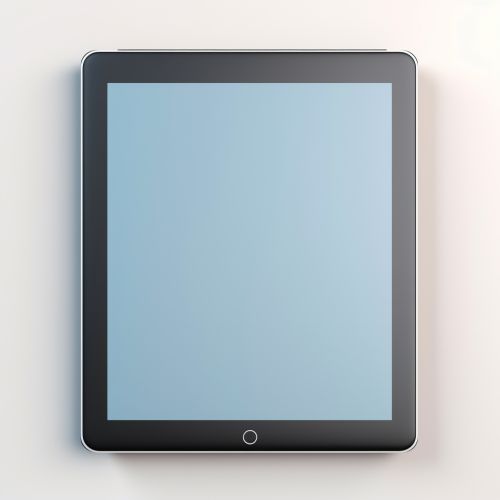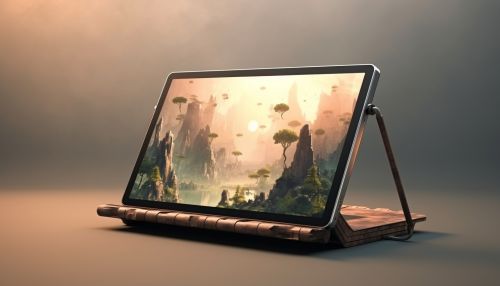Tablet Computer
Overview
A tablet computer, often simply referred to as a tablet, is a portable computer that uses a touchscreen as its primary input device. Most tablets are slightly smaller and weigh less than the average laptop. While the touchscreen interface makes tablets ideal for interactive media, they can also serve as a platform for e-book reading, web browsing, and media playback.
History
The concept of a tablet computer was first outlined by Alan Kay in his 1968 paper "A Personal Computer for Children of All Ages". However, it wasn't until the late 20th century that technology advanced enough to make such a device feasible. The first commercially successful tablet was the Apple Newton, released in 1993. However, it was the release of the Apple iPad in 2010 that truly popularized the format.
Design
Tablet computers typically feature a large display in a slim, lightweight form factor. This makes them highly portable and convenient for a variety of uses, from reading and web browsing to watching videos and playing games. The majority of tablets are based on a mobile operating system, such as Android or iOS, which allows them to run a wide variety of apps.


Hardware
The hardware of a tablet computer is similar to that of a smartphone, with the main difference being the larger screen. Tablets typically include a processor, memory, a storage device, a battery, a touchscreen, and various sensors such as an accelerometer, gyroscope, and ambient light sensor. Some tablets also include additional features such as a camera, microphone, GPS receiver, and cellular connectivity.
Software
Tablet computers run on mobile operating systems, which are designed to be used with touchscreen interfaces. The most popular tablet operating systems are Android, developed by Google, and iOS, developed by Apple. These operating systems support a wide range of applications, or apps, which can be downloaded from the Google Play Store or the Apple App Store, respectively.
Applications
Tablets are used in a variety of settings, from personal use to business and education. In the personal realm, tablets are often used for media consumption, such as watching videos, playing games, and reading e-books. In the business world, tablets can be used for presentations, note-taking, and email. In education, tablets can be used as a tool for interactive learning.
Future Trends
The future of tablet computers is likely to be influenced by advancements in technology and changes in user behavior. Potential trends include the integration of augmented and virtual reality, the development of foldable tablets, and the increased use of tablets in education and healthcare.
